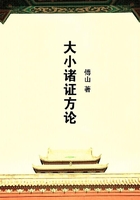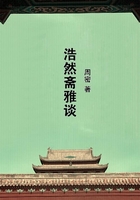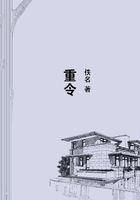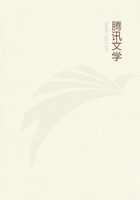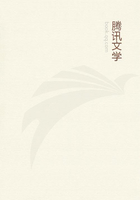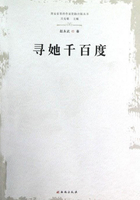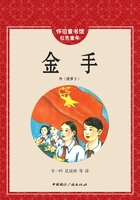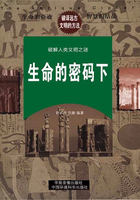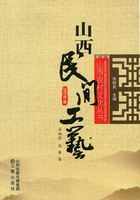"True in its leading facts; untrue in some of its details, and in the impression it creates. During the Presidential election which took place eight years ago last autumn, there was, as you may remember, a violent contest and a very close vote. We believed (though I was not so prominent in the party then as now), that the result of that election would be almost as important to the nation as the result of the war itself. Our defeat meant that the government must pass into the blood-stained hands of rebels, men whose designs were more than doubtful, and who could not, even if their designs had been good, restrain the violence of their followers. In consequence we strained every nerve. Money was freely spent, even to an amount much in excess of our resources.
How it was employed, I will not say.
I do not even know, for I held myself aloof from these details, which fell to the National Central Committee of which I was not a member. The great point was that a very large sum had been borrowed on pledged securities, and must be repaid. The members of the National Committee and certain senators held discussions on the subject, in which I shared. The end was that towards the close of the session the head of the committee, accompanied by two senators, came to me and told me that I must abandon my opposition to the Steamship Subsidy. They made no open avowal of their reasons, and I did not press for one. Their declaration, as the responsible heads of the organization, that certain action on my part was essential to the interests of the party, satisfied me. I did not consider myself at liberty to persist in a mere private opinion in regard to a measure about which I recognized the extreme likelihood of my being in error. I accordingly reported the bill, and voted for it, as did a large majority of the party. Mrs. Baker is mistaken in saying that the money was paid to me. If it was paid at all, of which I have no knowledge except from this letter, it was paid to the representative of the National Committee. I received no money. I had nothing to do with the money further than as I might draw my own conclusions in regard to the subsequent payment of the campaign debt."
Mrs. Lee listened to all this with intense interest. Not until this moment had she really felt as though she had got to the heart of politics, so that she could, like a physician with his stethoscope, measure the organic disease. Now at last she knew why the pulse beat with such unhealthy irregularity, and why men felt an anxiety which they could not or would not explain. Her interest in the disease overcame her disgust at the foulness of the revelation. To say that the discovery gave her actual pleasure would be doing her injustice; but the excitement of the moment swept away every other sensation. She did not even think of herself. Not until afterwards did she fairly grasp the absurdity of Ratcliffe's wish that in the face of such a story as this, she should still have vanity enough to undertake the reform of politics. And with his aid too!
The audacity of the man would have seemed sublime if she had felt sure that he knew the difference between good and evil, between a lie and the truth; but the more she saw of him, the surer she was that his courage was mere moral paralysis, and that he talked about virtue and vice as a man who is colour-blind talks about red and green; he did not see them as she saw them; if left to choose for himself he would have nothing to guide him. Was it politics that had caused this atrophy of the moral senses by disuse?
Meanwhile, here she sat face to face with a moral lunatic, who had not even enough sense of humour to see the absurdity of his own request, that she should go out to the shore of this ocean of corruption, and repeat the ancient r?le of King Canute, or Dame Partington with her mop and her pail. What was to be done with such an animal?
The bystander who looked on at this scene with a wider knowledge of facts, might have found entertainment in another view of the subject, that is to say, in the guilelessness ot Madeleine Lee. With all her warnings she was yet a mere baby-in-arms in the face of the great politician. She accepted his story as true, and she thought it as bad as possible; but had Mr. Ratcliffe's associates now been present to hear his version of it, they would have looked at each other with a smile of professional pride, and would have roundly sworn that he was, beyond a doubt, the ablest man this country had ever produced, and next to certain of being President. They would not, however, have told their own side of the story if they could have helped it, but in talking it over among themselves they might have assumed the facts to have been nearly as follows: that Ratcliffe had dragged them into an enormous expenditure to carry his own State, and with it his own re-election to the Senate; that they had tried to hold him responsible, and he had tried to shirk the responsibility; that there had been warm discussions on the subject; that he himself had privately suggested recourse to Baker, had shaped his conduct accordingly, and had compelled them, in order to save their own credit, to receive the money.
Even if Mrs. Lee had heard this part of the story, though it might have sharpened her indignation against Mr. Ratcliffe, it would not have altered her opinions. As it was, she had heard enough, and with a great effort to control her expression of disgust, she sank back in her chair as Ratcliffe concluded. Finding that she did not speak, he went on:
"I do not undertake to defend this affair. It is the act of my public life which I most regret--not the doing, but the necessity of doing. I do not differ from you in opinion on that point. I cannot acknowledge that there is here any real divergence between us."
"I am afraid," said Mrs. Lee, "that I cannot agree with you."
This brief remark, the very brevity of which carried a barb of sarcasm, escaped from Madeleine's lips before she had fairly intended it. Ratcliffe felt the sting, and it started him from his studied calmness of manner.

